Today, one in seven Canadians report having a disability, and that number will only continue to grow as our population ages. That is why we are taking the necessary steps to ensure greater inclusion of Canadians with disabilities, and to develop new federal accessibility legislation. The goal of the proposed legislation will be to increase the inclusion and participation of Canadians with disabilities by proactively removing barriers to accessibility.
Last year, we launched an ambitious public consultation process. We met with stakeholders and the public to talk about what an accessible Canada means to them, and we did it in the most accessible way possible. We held 18 public consultation sessions and nine thematic round tables across the country. We had a significant online component. We also held a national youth forum, which featured the Prime Minister of Canada. As well, the government provided funding to five partnerships of disability organizations, as well as three indigenous organizations, for them to engage with their members and communities. Throughout this process, we gained valuable insight into the everyday obstacles Canadians with disabilities face.
Last spring, we also released a report summarizing what we learned through these consultations. We heard about barriers that impede people’s ability to move freely in the built environment, to use transportation, to access information, and to use technology, as well as people’s ability to access services. We also heard about the barriers that result from people’s attitudes, beliefs, and misconceptions about what people with disabilities can and cannot do, as well as outdated policies and practices that simply do not take into account barriers related to disabilities.
We are hoping to break down all those barriers with our proposed accessibility legislation. Our proposed legislation will focus on more quality opportunities across all areas within federal areas and jurisdictions. This includes: employment; access to buildings and other public spaces through a built environment; transportation within the federal transportation network; service delivery; information and communications technology; and procurement of goods and services by the Government of Canada.
Over time, the proposed legislation would mean real change for Canadians with disabilities, as users of services, as clients, as travellers, as members of the public, and as employees in federal jurisdictions.
We want to change the story around ability and accessibility. Do not get me wrong, our government knows disability is complex. Disability is challenging, and nothing will be rectified overnight, but we truly believe that all the work we are doing, in collaboration with all of our partners, will lead us to tangible results. When I say “partners”, I mean leaders in accessibility, key stakeholders, provinces and territories, not-for-profit organizations, and of course Canadians, including those with disabilities.
When I speak to families in my riding of Longueuil—Charles-LeMoyne who have a member with a disability, often some of the challenges I hear about is that it is difficult having to deal with school boards, with health care, and the lack of coordination among various levels of government and jurisdictions. I work closely with my counterparts at the municipal, provincial, and education levels and institutions. It is imperative that we work in a collaborative way in order to address all of these concerns. It is already difficult enough having a family member with a disability, but having to also then navigate many different levels of government makes it even harder.
Thanks to our collaborative work, we will see real change, and we believe Canada will lead by example. It is our responsibility as change makers to make sure everyone is included. Together, we will make Canada an even greater nation than it is today.
Furthermore, we are anticipating the tabling of federal accessibility legislation in Parliament next spring.
Last December, the Government of Canada announced that we had begun the process toward possible accession to the Optional Protocol to the United Nations Convention on the Rights of Persons with Disabilities, a complaints mechanism that enables individuals or groups to file complaints with the United Nations if they believe their rights have been violated or are being violated in a systematic manner.
The government has been working over the course of the past year to undertake all of the necessary reviews and consultations required to move this forward. Through these consultations, stakeholders clearly demonstrated their strong support for accession.
We have made great progress. In fact, the Government of Canada tabled the Optional Protocol in the House of Commons on November 30. Tabling is a significant and necessary step in the federal process bringing Canada closer to accession. We are continuing to work collaboratively with our provincial and territorial partners and are seeking their formal support for accession. Provinces and territories must undertake their own formal processes to do so.
Upon accession, the Optional Protocol would provide Canadians with disabilities additional safeguards at the international level for the protection of their rights under the convention.
This announcement represents an important development in our work on improving the protection of rights of Canadians with disabilities everywhere across the country and one that is consistent with Canada’s long-standing commitment to equality, inclusion and full participation in Canadian society for persons with disabilities. We are very encouraged with the progress to date.
Our government takes inclusiveness and accessibility for people with disabilities very seriously and when we see colleagues table legislation initiatives like Bill C-348, we can only applaud them.
We agree that we need better application processes for disability-related programs and services. That is why our government is already taking the necessary actions to that end. In addition to our work towards proposed accessibility legislation, I must point out that Employment and Social Development Canada is already developing a department-wide strategy that will improve the quality of service to those with disabilities.
There are other reasons why Bill C-348, while well-intentioned, is not the right avenue to take. If passed, the bill would amend the Department of Employment and Social Development Act to designate that department as the primary point of contact for access to programs and services related to disability assistance.
In other words, the bill is intended to bring about a single application process for all disability related benefits and programs from the Government of Canada, but it is not clear how it would expedite the process and indeed how it would improve the level of service across departments.
Based on our understanding, Bill C-348, as it currently stands, each department would still operate under its own authorities. If ESDC were to become the sole interlocutor for all disability related programs, we would in fact be creating an additional administration for the many programs not currently delivered by this department. Instead of improving the process, it would worsen it by adding another level.
Our government is firmly committed to improving its services for people with disabilities and we want to do this the right way. People in my riding voice that to me and I am sure people in ridings across this great land have said the same to their members of Parliament. We owe it to the Canadians living with a disability to, once and for all, make things easier for them.

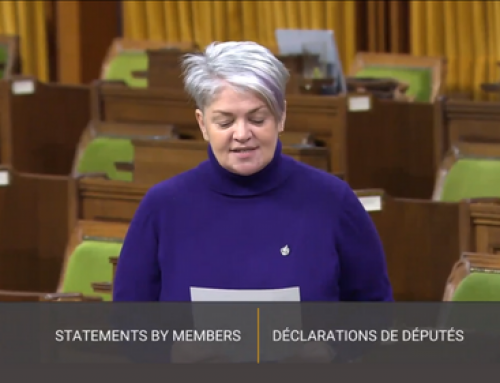
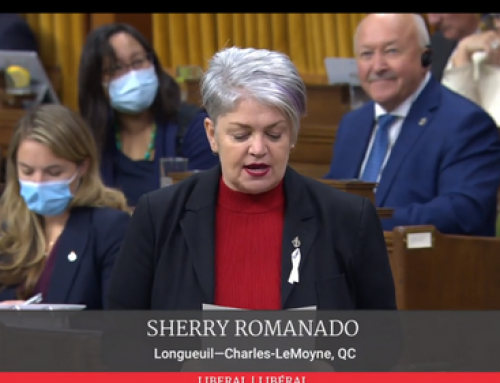
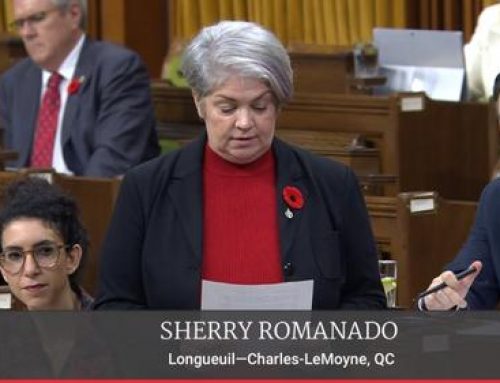
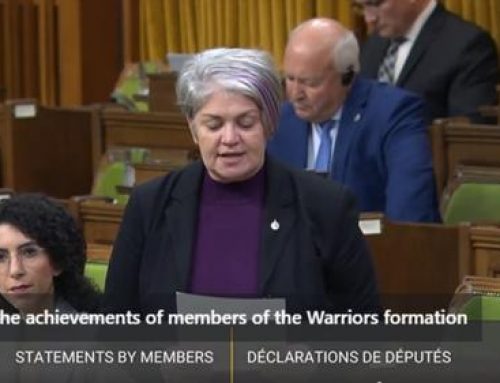
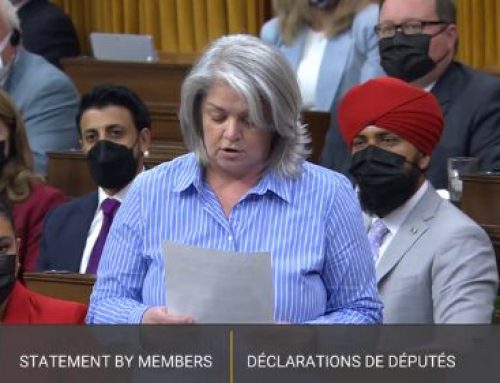
Leave A Comment